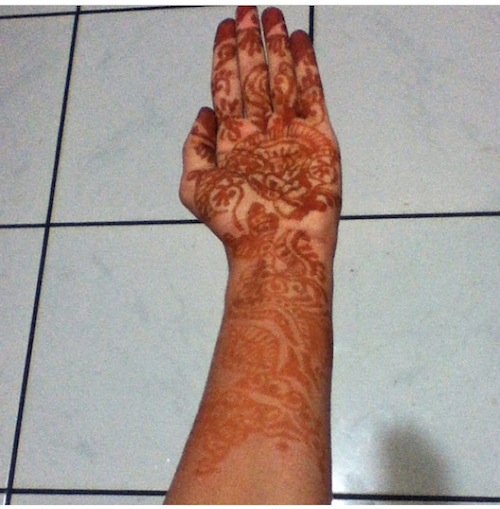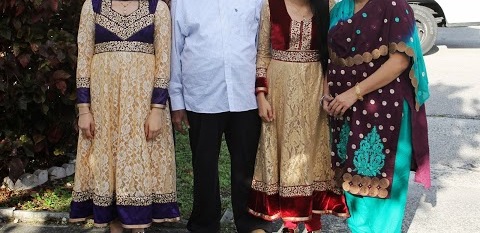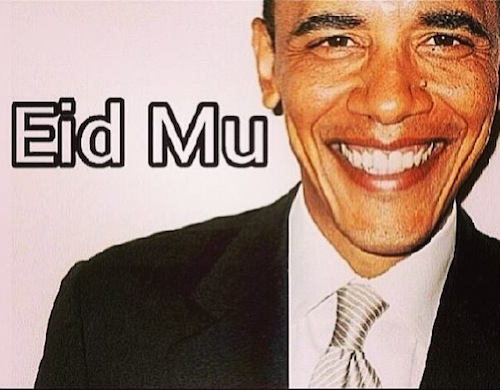For those of you that do not already know, this month has been spent fasting for almost 23% of the world's population, this percentage representing the amount of Muslims in the world. However, what some might not know about Ramadan, is that it is a lot more elaborate than just physical fasting.
Way before fasting was done at this particular time Ramadan was just the 9th month in the lunar calendar. However the arabic root in the month "ramida" means severe heat or lack of provisions, making its solid candidate month to select for fasting if I do say so myself. However, the larger reason for this month being chosen to fast in, is the idea that is the supposed month that the prophet Mohammed (SAW) received the first revelation of the Quran (Muslim holy book).
Due to Muslims following the lunar calendar, the days in which Ramadan will take place shift every year. The current pattern is the week Ramadan begins is 10 days earlier every year. Another interesting fact that most don't know about Ramadan is that Muslims in other countries do not necessarily begin fasting on the same day. There are usually occurences where some countries will be a day ahead/behind others with fasting. This is because, fasting can only begin with a clear sighting of the new moon signaling the beginning of the month, and where the sighting isn't confirmed, fasting won't take place the following day. For instance, my aunt's family who lives in UK began fasting the same day as people in America, while my family in India began fasting the following day. This method that determines the first day of fasting, is also used to determine the last day fasting (the sight of another new moon signaling a month).
Once it has been determined the fasting will begin, the following morning before dawn (times vary for countries) Muslims will wake up early for a pre-dawn meal referred to as "sehri". This will be the time range they can have a meal and last drink before they must fast until sunset. The meal where the fast is broken is known as "Iftar" and one particular aspect that most Muslims follow is to eat a date (pictured below) as the prophet Muhammed (SAW) ate three before breaking his own fast. Once the fast has been broken, time is set aside for the prayer that occurs in that time range and families will return to the table for an often times hefty meal. The great thing about Iftar is that most families have their own unique aspects and its always fun for me to visit a friend'a house to break my fast and see how they go about it. In my family, we all have homemade lemonade that is only made during this month for the whole year, making it something I always look forward to.
Another difference with some countries is that those with Muslim majorities tend to be more proactive when it comes to Ramadan. In order for me to be immersed in all things Ramadan I would have to go to my mosque (Muslim church) where there would be an agglomeration of fasting and praying Muslims. In states like Dubai, in the UAE (United Arab Emirates) fasting is a state-wide event where all restaurants are closed during the day time, and only open after Iftar. Also, some of these states have rules where tourists and others not engaging in fasting are not allowed to eat in public and have to do it indoors and out of the public eye.
Not all Muslims you come across will be fasting, however. Just like with many things in life, there are exceptions for fasting and these include illness, traveling, pregnancy, diabetes, and menstruation. However, all of these fasts must be made up at some point in your life. The exclusion to this making-up would of course include illnesses that would prevent you from fasting at all. Fasting is mandatory for all adults (defined by reaching puberty) but plenty of younger ages will partake in fasting with their families.
The most important thing about fasting this month is that you are not only fasting physically, but mentally as well. The purpose is to fast the tongue (refrain from gossip) fast the ears (not listen to cursing and things of that nature) and fast the feet (turn and walk away from sins).
While the month of Ramadan is known for multiplying the rewards for good deeds hundreds of times more than during the rest of the year, there is one particular night during the month called Laylat-al-Qadr "night of power" where praying during this night is equivalent to the praying of 1000 months. The one catch: no one knows what day it is. All that is known of the occurrence of this night is that is happens on an odd-numbered night during the last 10 days of Ramadan. For this particular reason, the last ten days are usually spent doing a lot more optional prayers then other days of the month and year. The reason for this night being so special is that it is the supposed night of the first revelation of the Quran.
To celebrate a month's worth of fasting, the day after the last fast is spent in celebration and is referred to as Eid-al-Fitr which means festival of breaking of the fast. This day will be spent doing a special Eid prayer in the morning, gifting of money and presents to children's and some adults, as well as the adorning of fancy suits for the males and fancy dresses and henna for the females. So be on the look out for an upcoming gallery article of both henna and gorgeous dresses (created by my talented mother and not my mediocre creative self).


I hope you have learned at least one new fact about this special month, and can impress your Muslim friends with your vast new knowledge on all things Ramadan. And if you are really feeling it, wish them "Ramadan Mubarak" sometime during this month and once Eid comes "Eid Mubarak" which mean "Happy Ramadan/Eid".


(my favorite meme)
Author's Note: The henna in the picture was done by my mom as were all the dresses in the picture below it. This information has come from years of learning with my religious teacher of sorts (RIP).